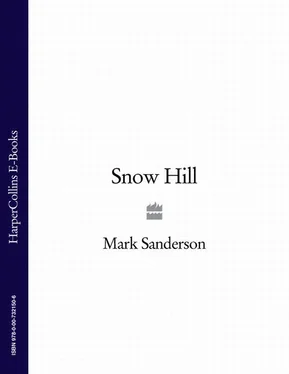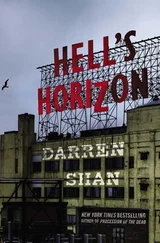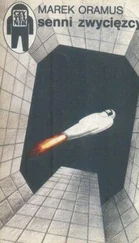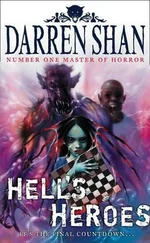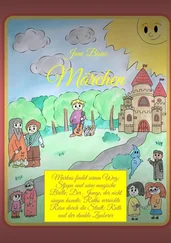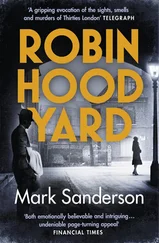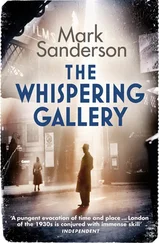At school he had pored for hours over history textbooks, hoping to find out what men like his father had been forced to endure, but mostly the authors skated over the realities of warfare and instead focused on the causes and consequences of the conflict, with a paragraph or two of waffle about the honour and heroic sacrifice of the troops. He had tried to imagine the blood and the mud; the stench of the trench; the crawling lice and gnawing rats; the random, wholesale carnage and the mind-splitting shriek of the shells. However, reading was no substitute for the real thing. He had tried to talk to those who had returned from France, men who had seen the atrocity of war at first hand, but most of them, like Inspector Rotherforth, had clammed up or changed the subject, clearly reluctant to release the painful memories. The wounded look in their eyes was similar to the one now staring back at him in the mirror.
Johnny was haunted by his mother’s death. Having to stand by while she had screamed and screamed in agony—not for a few seconds, not for a few minutes, but until she was too exhausted to scream any more—had taught him all there was to know about powerlessness. He had been totally unprepared for the messiness of death.
He tramped up the wooden stairs to the bathroom that had once been his bedroom. The cold always made his bladder shrink. After the funeral he had made a conscious effort to jettison the past. Most of his wages as a reporter—which, although pretty low, were far more than he had ever earned before—had gone on converting the terraced two-up, two-down in Cruden Street into a modern bachelor pad. When the landlords learned about his new bathroom they had increased the rent and said they would do so again if he made any further alterations. He was on the mains now, what more did he want?
Why was it that any attempt to better yourself or your situation always proved, one way or another, so costly?
Wednesday, 9th December, 4.05 p.m.
Johnny breathed a sigh of relief when the trial of Rex v. Yelloff, a fruit importer accused of torching his own warehouse in Australian Avenue, was adjourned until the following morning. He’d have to be back at the office to file his daily round-up of court news by the 5.30 p.m. deadline, but in the meantime there was someone he wanted to see.
Imprisoned in the Old Bailey for most of the day, Johnny had been unable to contact Matt to find out the name of the rookie cop. That would have to wait now. It was more important to establish whether a body had turned up over the weekend. The dead cop—if there was one—might not have been a new recruit. Whoever the supposed victim might be, their body would have to have been taken somewhere.
The City of London Police comprised four divisions: A Division, based in Moor Lane; B Division, in Snow Hill—where the tip-off said the victim was stationed; C Division, in Bishopsgate; and D Division, in Cloak Lane. Although the headquarters of the “gentlemen cops” was in Old Jewry, the mortuary for the force was in Moor Lane. Johnny’s contact there had assured him that no officer or unidentified person had been brought in over the weekend. His opposite number at the Metropolitan Police mortuary in Horseferry Road, a truculent tyke, swore that “no dead pigs of any sort” had been delivered there. That left only one other place a corpse could feasibly be taken: Bart’s.
Johnny crossed the courtyard, its fountain chuckling to itself in the gloom, and went round to the pathology block at the back where, via Little Britain, black vans could come and go day and night without attracting too much attention.
It felt warm in the morgue. The sudden contrast to the Arctic air outside made his nose run. He let his eyes adjust to the dim lighting. He was looking for Percy Hughes, the mortuary assistant. Ever on the lookout for money-making opportunities, Percy had been a part of the Bart’s drugs ring. He was only a lowly delivery boy to the pharmacist, but it would have been enough to get him sent down had it not been for Johnny agreeing to keep his name out of the investigation in exchange for his services as an informant.
Today he was sluicing the black-and-white tiled floor with some sort of brown disinfectant.
“Mind where yer standin’!”
“Sorry, sorry.” Johnny stepped back in the nick of time, the puddle advancing within inches of his toes. It looked like diarrhoea. “Have you got a minute?” He glanced round. The basement was empty. He jingled the change in his pocket.
Hughes’ hand shot out and grabbed the two half-crowns from Johnny’s palm.
Johnny laughed and said: “I’m looking for a policeman.”
Percy carried on mopping. He had none of that cheerful callousness which those who work with the dead sometimes adopt to disguise their true feelings. Johnny could not imagine how he got through the endless night shifts with only corpses for company. No wonder he was always miserable; his normal expression was that of a moose not getting enough moss.
“Yer won’t find one ’ere—dead nor alive.”
“What d’you know about a dead cop?”
“Nuffink.” Percy kept his eyes on the floor. He was clearly uncomfortable. As he spent most of his time with folk who would never talk again, he was usually glad of the chance to chat. Not today though.
“Cat got your tongue?”
“Nope.”
“Well, what’s up then? Your price gone up?”
“Nope.” He squeezed his mop out and began to push the last of the foul liquid down the drain. There was something in it that made the eyes sting. It did not smell too good either. Johnny took a deep breath and, looking around, waited for Hughes to break the silence.
There were three slabs in the mortuary. The green curtains used to screen cadavers from view were at present pushed back against the tiled wall. On the opposite wall were six refrigerators, each with three drawers: filing cabinets for stiffs. Johnny’s eyes took in the glass-fronted cupboards with their intimidating array of glistening surgical instruments: saws and scalpels, trepans and trocars, forceps, xysters and specula. He tried not to linger too long on the specimen jars, labelled in copperplate, which held various body parts pickled in formaldehyde, like denizens of an obscene aquarium.
Johnny tried again:
“Forget about the patients. Were any corpses brought in over the weekend?”
Hughes concentrated on making figure-of-eight swirls with the mop.
Johnny snatched it off him. “Have you been told to keep your trap shut?”
“What d’yer mean?”
“Percy, I won’t ask again. It’s not too late for me to turn you in—one phone call, that’s all it would take.”
“Okay, okay. Keep yer ’air on. A dead ’un did come in, early Sunday mornin’.”
“Thank you. Was it a cop?”
“’Ow the ’ell should I know? ’E was in ’is birthday suit.”
“Now we’re getting somewhere. Name?”
“Dunno. They didn’t tell me ’is name. Said they didn’t know it either.”
“Who’s ‘they’?”
“The two geezers what brung ’im in. And before you ask, I’d never seen ’em before in my life.”
He was lying.
“How old was he?”
“Early twenties, I reckon.”
“Was there a post mortem?”
“Nope.”
“Cause of death?”
“Dunno. Register says hypothermia.”
“Is there going to be a funeral?”
“’Ardly. The body’s bin donated to medical science. Stuck-up students’ll be chopping ’im into cat-meat as we speak.”
“On whose authority?”
“None needed. No next of kin. Barnardo’s Boy, so they said.”
“Very convenient…Go on.”
For a moment, Hughes had been about to say something. He was not usually so reluctant to spill the beans. Seeing how afraid Percy was, Johnny was certain that he must be on the right track. He took out another half-crown. To a lad who earned less than £3 a week, this was significant encouragement. It was a pretty significant amount to Johnny, too; well beyond his usual budget for informants. He prayed that Patsel would sign off his expenses.
Читать дальше
